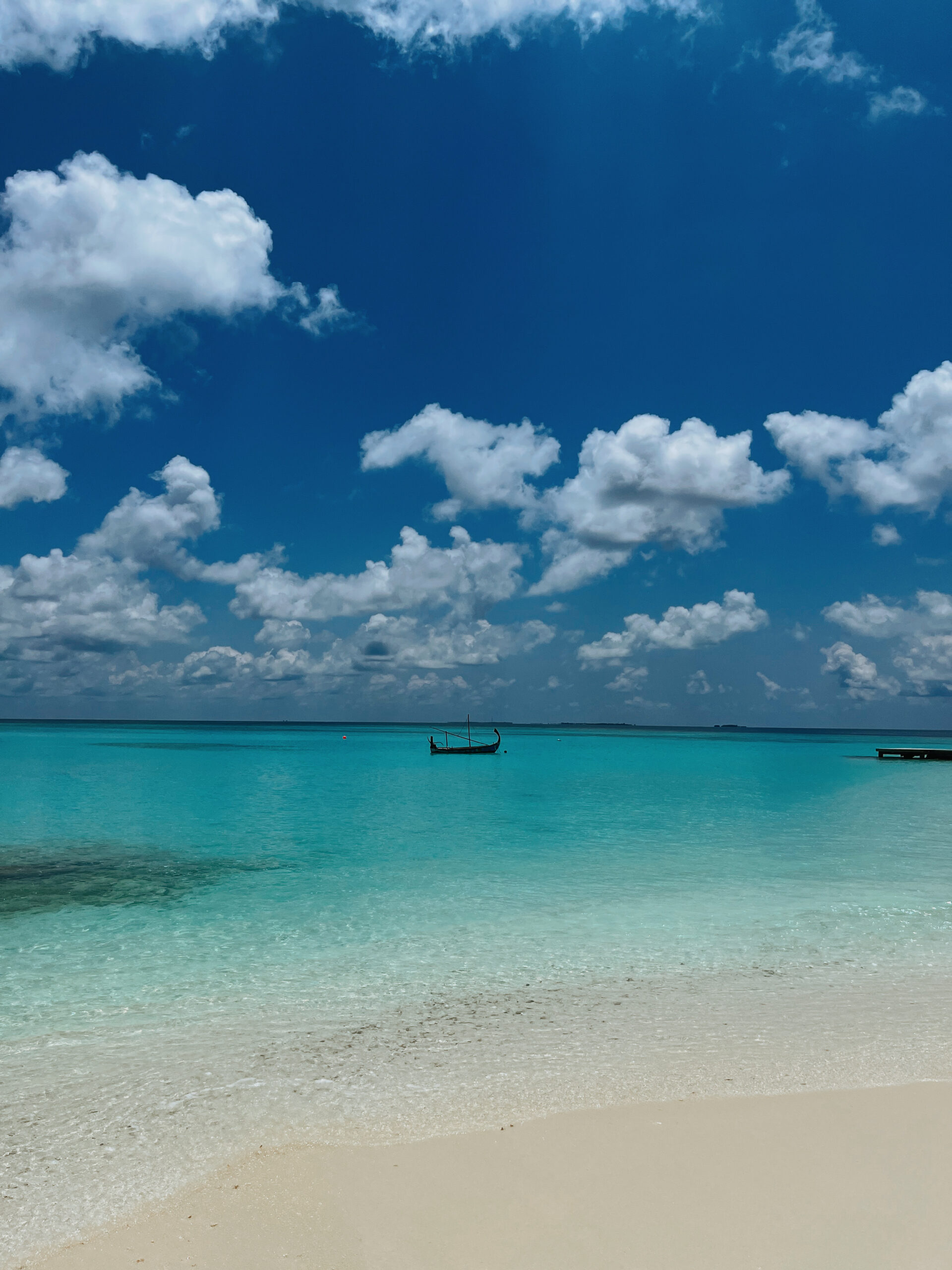The Maldives is a tropical paradise known for its white sand beaches, crystal-clear waters, and vibrant marine life. If you’re planning a trip to this island nation, here are some things you should know to make the most of your experience.
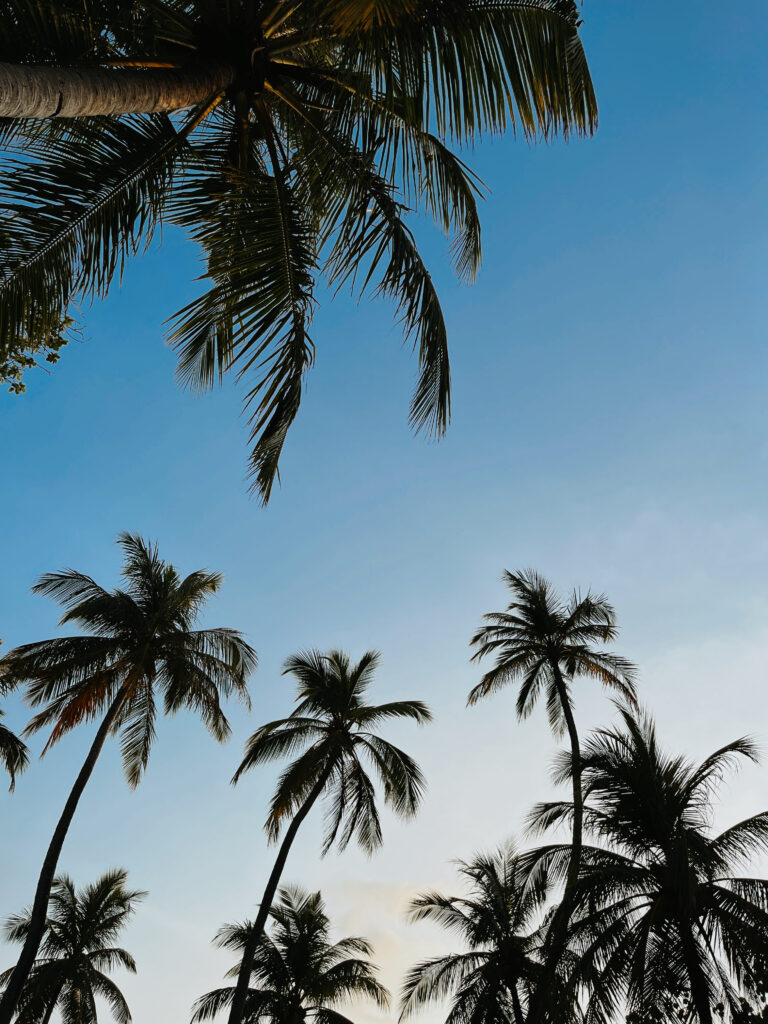
- The Maldives does not sell itself as a budget destination but it can be one!
In the world of travel, the Maldives has long been known as a luxury destination, reserved for the wealthy and elite. However, this couldn’t be further from the truth. The Maldives has a budget-friendly side, perfect for those who seek to explore this tropical paradise without breaking the bank. While social media may be dominated by lavish resorts, islands like Maafushi, Dhigurah, Dhiffushi, Thoddoo, and Ukulhas offer affordable accommodation options, such as guesthouses and inns, typically including breakfast. Don’t let the myth of the Maldives being only for the rich deter you from discovering the natural beauty and authentic culture of this island nation.
2. Overwater villas can be very expensive but there’s something for every budget in the Maldives
If you’re looking for a little more luxury, overwater villas are a popular choice. However, prices for these stunning accommodations can be steep. Fear not, as the prices vary widely between resorts, with options to suit every budget. For example, the charming Embudu Village resort offers overwater villas starting at GBP300 per night (exclusive of taxes) for half board.
3. Beach villas are as good as overwater villas
While overwater villas may steal the spotlight, it’s important to remember that beach villas are just as good, if not better. Many beach villas boast breathtaking designs and are just as aesthetically pleasing as their overwater counterparts. Additionally, beach villas offer easy access to the beach, making it a convenient option for those who enjoy the sand between their toes.

4. There are usually no lifeguards manning the coast
It’s important to note that many resorts do not have lifeguards on duty at all times, so be extra cautious if you’re traveling with children. Additionally, some resorts do not allow families with kids to stay in overwater villas due to safety concerns.
5. The Seaplane transfer system is complex and expensive but totally worth it
Another aspect of Maldivian travel to consider is the seaplane transfer system. While the experience of flying above the atolls is exhilarating and provides an incredible start to your trip, seaplane transfers can be complex and expensive. Check-in times are not provided until the evening before your flight, as the airline that manages the flights decides routes based on which resorts need to be serviced. Despite the complexities, I found the seaplane transfer to be well worth the investment, and resort staff are always available to guide you through the process.
6. Seaplanes only fly during daylight hours
For safety reasons, seaplanes only fly between the hours of 6 in the morning to 6 in the evening. Resorts generally advise guests to book a hotel in Male if their international flight arrives after 3.30pm into Male airport.
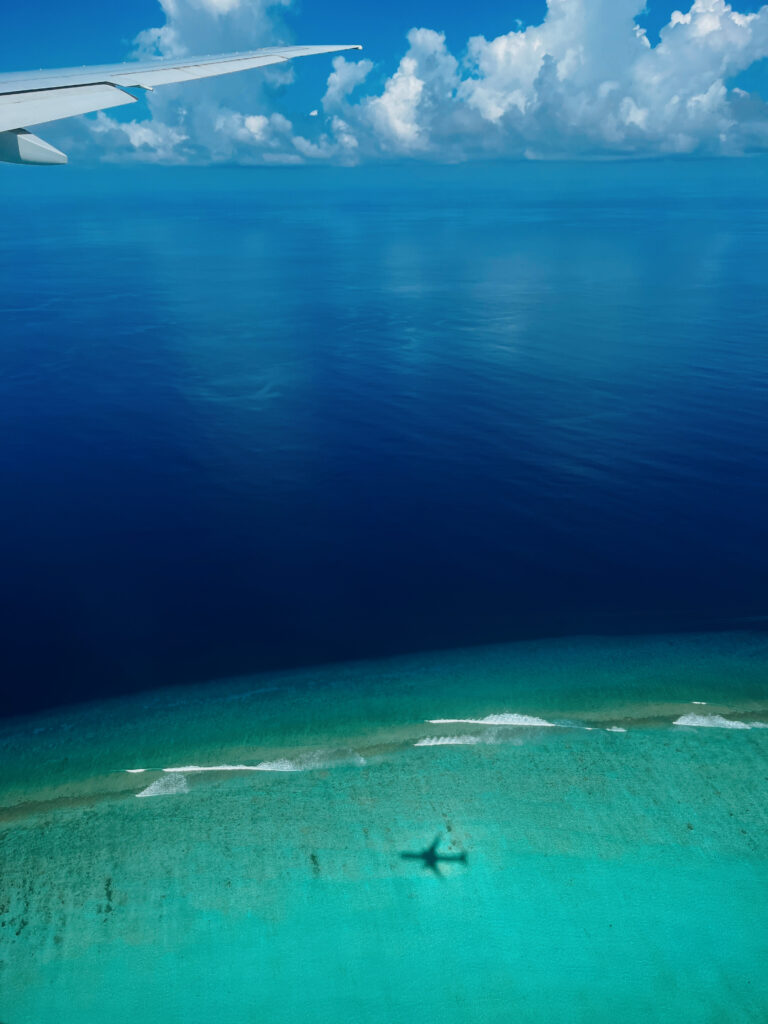
7. Very few resorts have more than one means of transfer
Depending on where your resort is located, you will either be transferred by seaplane or speedboat. Some resorts also have the option of getting a domestic flight to a local airport and then hopping on a speedboat to get to the resort. As a thumb rule, resorts close to Male, like South Male atoll and North Male atoll are usually reached by speedboat. Atolls further away like Baa, Raa, Lhaviyani etc tend to be reached by seaplane.
8. If your budget allows for it, go All Inclusive or Full Board
When choosing your accommodation package, it’s important to consider your budget and food preferences. While half board may seem like the most budget-friendly option, it can end up being more expensive in the long run, especially if you are on a private island resort with no other dining options. If your budget allows for it, consider opting for full board or All Inclusive packages. These packages typically include meals, some alcoholic beverages, and may even offer discounted activities.
9. You can find the same scenery, landscape and waters anywhere in the Maldives
The Maldives are known for their turquoise blue waters, white sand beaches, long slender coconut trees and paradisiac sunsets and sunrises. Rest assured that you will find these anywhere in the Maldives.
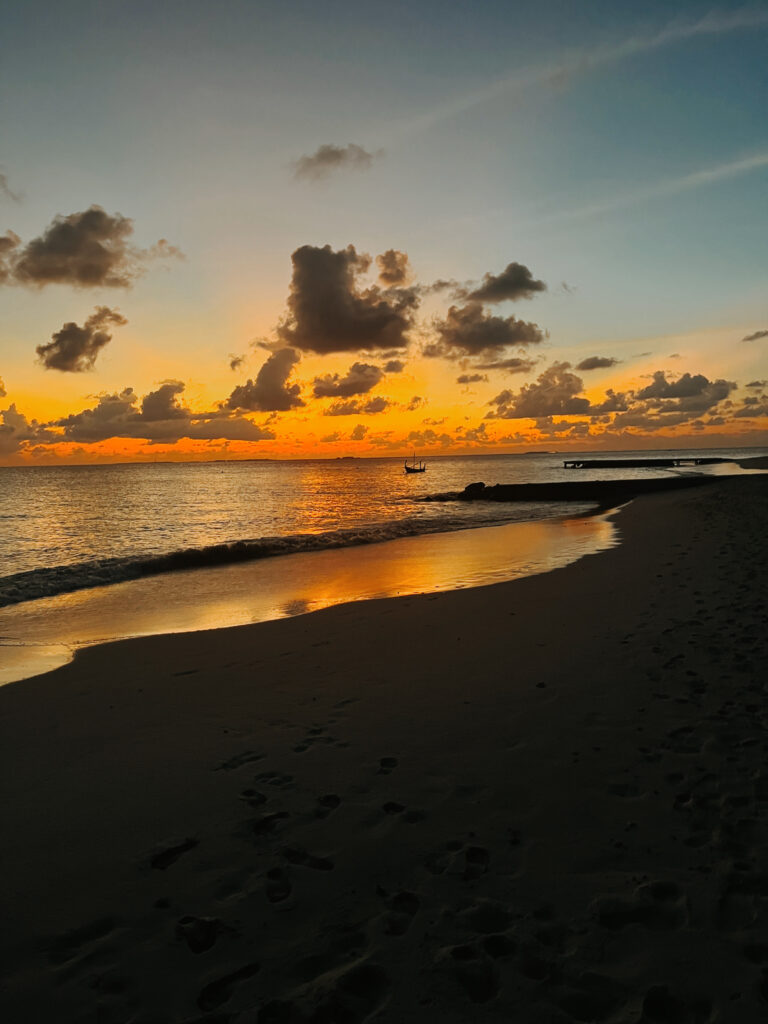
10. USD, GBP and Euros are widely accepted in the Maldives
When it comes to currency, don’t worry about getting your hands on Maldivian Rufiya before your trip. The US Dollar is widely accepted, and some places even take the British Pound and Euros. You can even rely on your debit or credit card for most transactions.
11. Most transfers are not included in the cost of your stay
It is important to note that most resorts do not include the cost of your speedboat or seaplane transfer within the room rate. This tends to be separate and is usually paid in advance directly to the resort so they can organize the timings with Seaplane company.
12. The best time to visit the Maldives can vary and can affect your budget
When planning your visit, the best time to go to the Maldives is between November and April, during the dry season. However, keep in mind that this is also the more expensive and busier time, especially during peak holiday periods like Christmas, New Year’s, and Easter. If you don’t mind a little rain, visiting during the wet season from May to October can be a great way to save some money, as resorts tend to be slightly cheaper.
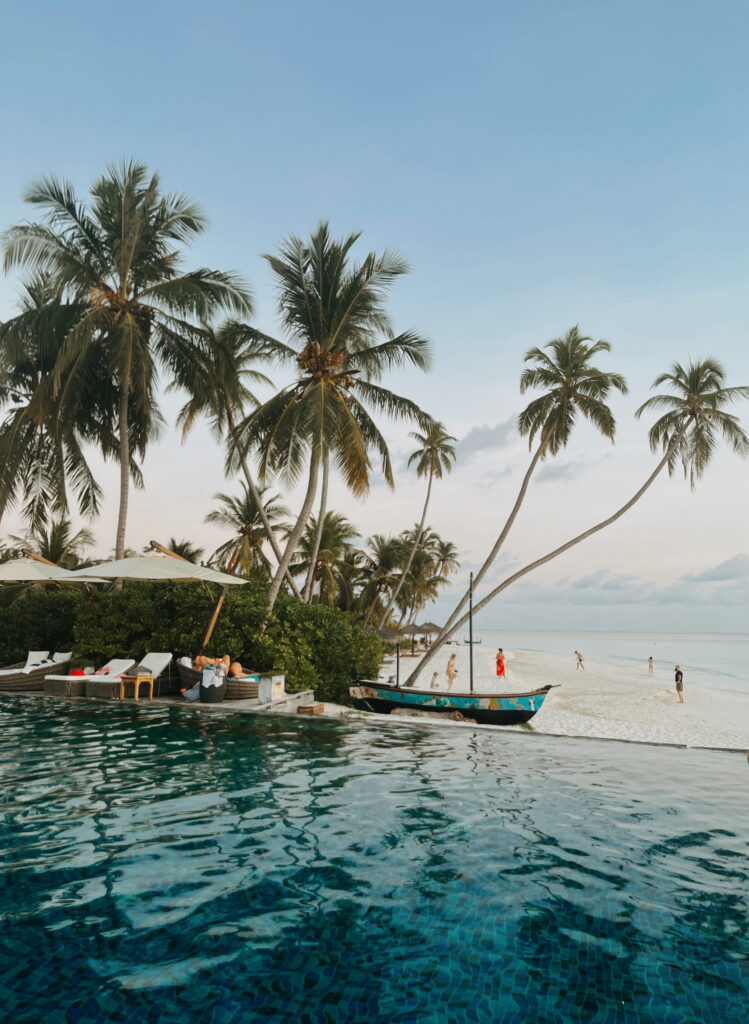
13. Most activities are at an additional cost, even if you opt for All Inclusive
While resorts in the Maldives offer a plethora of activities for their guests to enjoy, it’s important to note that these activities often come at an additional cost. Even if you opt for an All Inclusive package, most activities may still require an extra fee. However, some packages may include discounts or a limited number of complimentary activities.
14. The Maldives is a visa free destination
For travellers planning a visit to the Maldives, it’s worth noting that the country is a visa-free destination. No visa is required prior to arrival or upon arrival at the airport. However, visitors must fill out a Traveler Declaration Form within 96 hours of their arrival. Once completed, travelers will receive a stamp in their passport allowing entry into the country.
15. You cannot bring alcohol into the Maldives
Although most resorts in the Maldives are permitted to sell alcohol, it’s important to note that visitors are not allowed to bring their own alcohol into the country. While the Maldives is an Islamic country, most resorts cater to tourists and offer a range of alcoholic beverages for guests to enjoy.

16. Maldives is more than a honeymoon destination
There is a misconception that the Maldives are a honeymoon destination. This is not entirely true! The Maldives may be a tropical paradise for newly weds but it is also a paradise for families, friend groups and even solo travellers! Several resorts cater to families and there are activities for kids as well.
17. Picking a resort is the hardest job!
When planning a trip to the Maldives, choosing a resort can be a daunting task. To simplify the process, it’s helpful to first decide on a budget for accommodations, and then consider transportation options and meal plans. It can also be useful to read reviews from previous travelers to gain insight into the experiences they had at different resorts. With a little research, it’s possible to find the perfect resort for your dream Maldives getaway.
18. If you’re keen to try an overwater villa but not sure you can afford it, mix it up!
If you’re looking for an affordable way to experience the luxurious overwater villas in the Maldives, consider mixing it up during your stay. While overwater villas can be quite expensive, you can choose to stay in a variety of villa types during your trip. Perhaps you could spend most of your time in a beach villa and treat yourself to a single night in an overwater villa for the experience. A lot of people do this, I did it too!

19. Choose a resort that focusses on sustainable practices
When choosing a resort in the Maldives, consider selecting one that prioritizes sustainable practices. Many resorts in the Maldives are now focused on conservation and restoration efforts to help combat climate change and protect marine life. While there is still a long way to go, it’s great to see the Maldives moving in the right direction towards sustainability.
20. Male is very different from the rest of the Maldives
Unlike Maldives’ laidback islands, Male, the capital city is very much a large town. There isn’t a lot to do in Male and the vibe and atmosphere are entirely different. I personally did not feel safe roaming around the streets of Male as there were barely any women. Apart from staying overnight at a hotel to get your seaplane the next day, there isn’t much else for tourists to do here.
21. Remember to pack sunscreen, repellant and other essentials!
As I mentioned earlier, the islands can be very expensive when it comes to buying things, including everyday essentials. Make sure to pack in enough sunscreen, mosquito repellant and any medicine you may need.
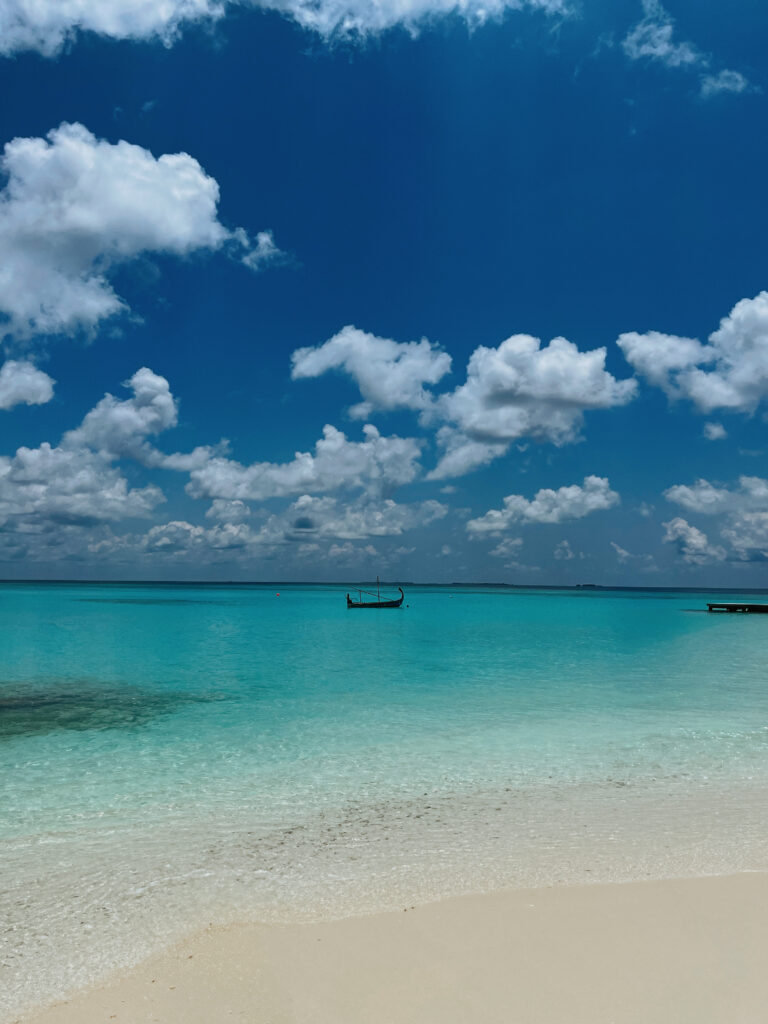
22. If you’re planning on staying for less than 7 days, stay at one resort
I do not recommend hopping from one resort to another every few days. Transfers can be expensive and tedious as well. If you’re staying less than 7 days, it’s best to stick to one resort to enjoy your break. If you’re there for more than 7 days, you could split at least 4 days between two different resorts. As a rule of thumb, it’s best to stay in one resort for at least 5 days.
23. Transfers between resorts can be complicated and expensive
If you’re looking to hop between resorts, it is most likely that you will need to get a speedboat or seaplane back to Male to continue to your next destination as opposed to flying directly. Private transfers are available but these usually cost a lot of money.
24. It is illegal to take seashells and corals with you outside the Maldives
Carrying seashells and corals outside the Maldives is prohibited. This is required to remain in the Maldives to preserve the natural landscape and eco systems.
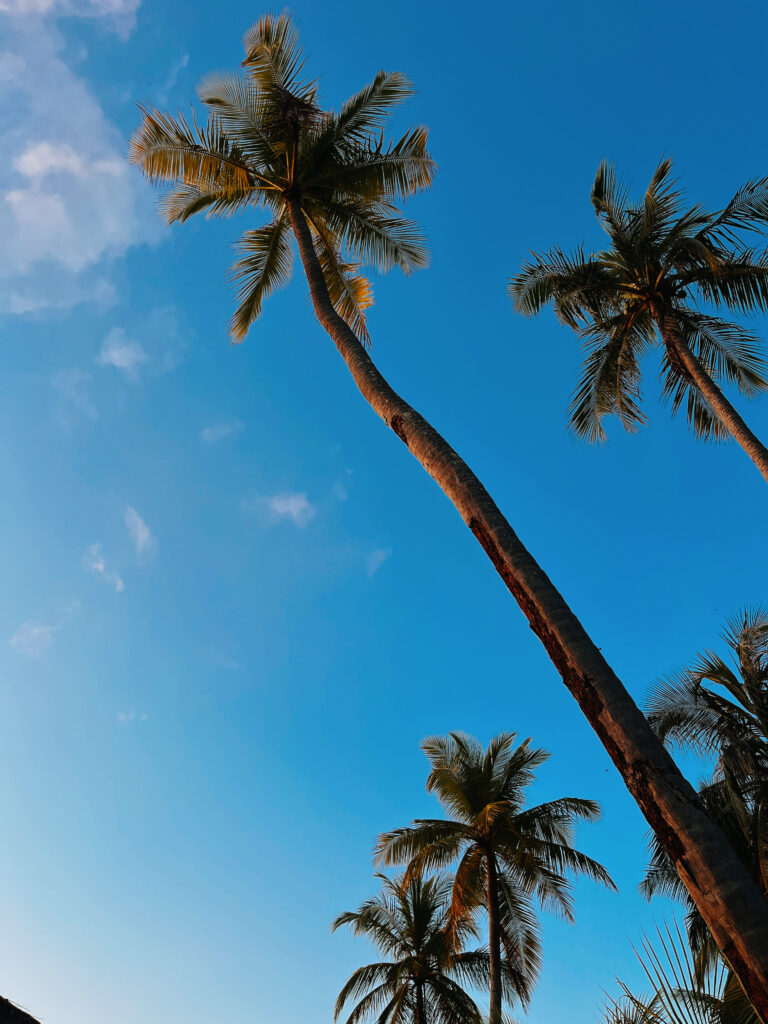
25. Factor in taxes when you buy products, services and goods in the Maldives
Taxes in the Maldives can be quite high. When purchasing goods or services in the Maldives, factor in the high taxes, which can amount to a total of at least 26% tax on something you buy, including a 10% Service Charge and 16% Goods and Services Tax. Resorts also require a Green Tax per night of your stay, usually $6 per night.
